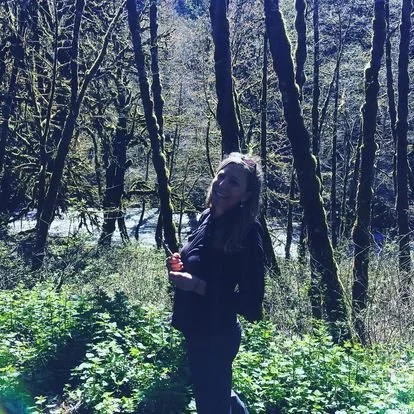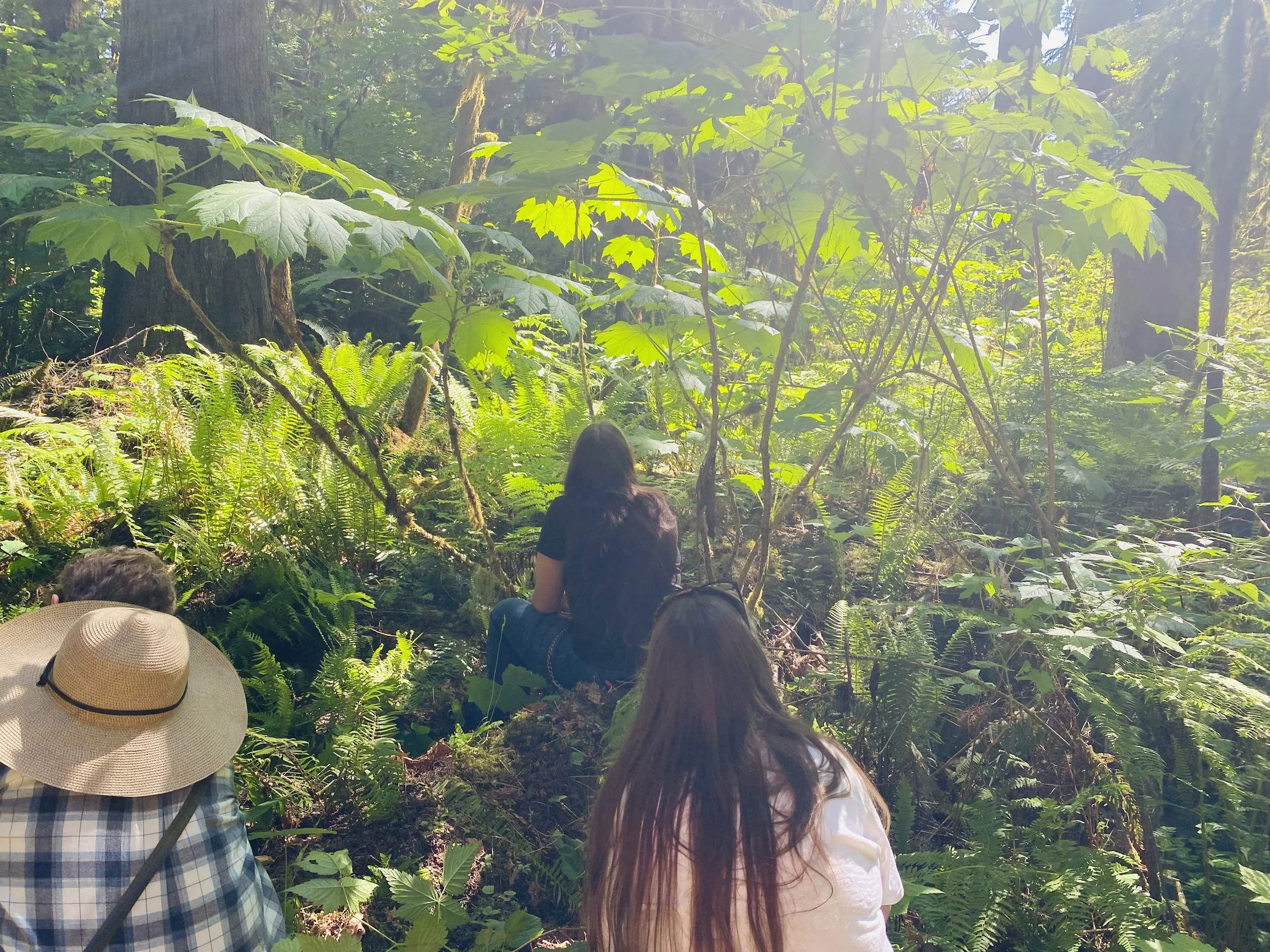Plant Medicine Apprenticeship 2025 Deposit
Plant Medicine Apprenticeship 2025 Deposit
Initiate your Healer Within through Connection to the Wild!
At Trillium, we believe each of us has a healer within- and connection to plants and wild habitat helps us to establish that inner healer connection. The focus of this program is integrating wild plants into our daily lives with wild food and wild medicine. This type of training connects deeply with your nervous system allowing you to learn not only by “doing” but also by actively immersing in to the plants medicine- with all your senses actively engaging.
You will leave with linear training in herbal medicine making, harvest techniques and practicum. You will also gain insight into the unique medicine you carry and how to present it to the world.
What To Expect
Full tuition is $1030.00. Your $50.00 deposit will hold your space and is non-refundable unless the apprenticeship is cancelled or in the rare occasion that you are not accepted in to the program. Following your deposit, Erin will contact you for a phone interview to be sure we are a good fit.
We meet one Saturday every month for six months, 10:00 am-4:30 pm. This allows your time apprenticing to build layers of competency and knowledge within the circle of other apprentices and instructor Erin Vanhee.
Our living classroom is on the 17 acre wild campus that is the home of Erin Vanhee and the campus of Trillium Medicine.
Class takes place out with the plants as much as possible unless the weather is extreme. Trillium is off grid and is in a remote, rural area. Our harvest areas are on campus or within 10 miles. Facilities are limited - most harvest sites have no power, bathrooms. If this is uncomfortable for you- please see our indoor classes in Burlington.
Following our monthly in person training, we will meet once a month virtually via Zoom for questions, follow ups on assignments and connection.
This link will allow you to hold your space with a non-refundable $50.00 deposit. Your deposit will be refunded in full if the program is cancelled for low enrolment or any other unforeseeable circumstance.
Curriculum
COURSE DESCRIPTION
This herbal program spans six months and three seasons featuring in-person training complemented by virtual learning and home study. Held one weekend day per month from April-September 2025, this course provides three core areas of focus: wild and cultivated plant study, medicine making skills and strengthening body systems through optimum nourishment.
COURSE OBJECTIVES
Plant Identification:
Develop proficiency in identifying and classifying plants in their native habitats using advanced observation techniques, habitat awareness, and plant taxonomy.
Gain the ability to recognize and catalog a diverse range of wild and cultivated plants, enhancing your field study and practical application skills.
Implementing Sustainable Harvesting Practices:
Acquire knowledge of wildcrafting techniques and sustainable harvesting methods for roots, bark, leaves, and seeds.
Learn how to maintain and rejuvenate harvest sites through re-population practices such as crown re-planting, seed distribution, and root and rhizome cuttings.
Medicinal Plant Cultivation:
Develop skills in organic cultivation methods for medicinal plants, including understanding harvest protocols and cultural practices to support healthy plant growth and effective medicine making.
Herbal Medicine Making:
Master both folk and standardized methods for creating herbal medicines, including how to prepare remedies from fresh and dried plants.
Gain hands-on experience in application of herbs during mock case study protocols
Understanding personal connection and Herbal Energetics of wild and cultivated medicinal plants
Course Format and Dates
This program is in-person with at-home independent study. Classes will be held at Trillium Ridge near Concrete, WA from Hiway 20 (and Darrington, WA from Seattle via Hwy 530) from April-September. This is a rural location with limited accommodations and services.
Some class dates will include arranged carpooling to pre-determined locations from Trillium Ridge; arrangements will be made prior to apprenticeship dates.
Dates— Apprenticeship is held the first Saturday of each month from 10:00 am - 4:30 pm. Note: class is not held the Fourth of July weekend & instead is held the second weekend of July.
Saturday, April 5, 2025 10:00 am - 4:30 pm at Trillium Ridge Campus
Introductions, Introduction to Herbal Medicine
Apothecary studies overview and choosing your medicine
Apothecary Training: Water-based preparations (infusions, decoctions, syrups)
Six Steps of Healing, philosophy of healing, healing vs. curing
Saturday, May 3, 2025 10:00 am - 4:30 pm near Trillium Ridge in Concrete, WA
Organic cultivation of medicinal plants
Apothecary Training: Tinctures, Oxymels, Folk Medicine/Standardized
Harvest protocols, habitat awareness
Wild edibles: Food As Medicine
Saturday, June 7, 2025 10:00 am - 4:30 pm near Trillium Ridge
Herbal Lineage
Ancestors, Herbal Allies
Herbs for Trauma, Emotional aspects of healing
Earth Medicines: Stones, trees, water, salt
Saturday, July 13, 2025 10:00 am - 4:30 pm near Trillium Ridge
Energetic healing
Making Flower Essences
Saturday, August 3, 2025 10:00 am - 4:30 pm near Trillium Ridge
Apothecary Training- Oils, balms
Art of Listening- Deep listening, holding space
Mock case studies, application of plant medicine
Saturday, September 7, 2025 10:00 am - 4:30 pm near Trillium Ridge
Roots of Healing
Defining your practice
Graduation and Talent Show
Tuition and Supplies
Tuition for this Apprenticeship is $1030.00. Tuition includes all in person training, online learning material, home study projects, one evening per month virtual training and all plants used in our time together.
After you have enrolled, Erin will contact you for an introduction. If in the rare event that we decide we are not a good fit- your tuition is refunded. (minus $30 banking credit card fee)
Once accepted in to the apprenticeship- No refunds or transfers are allowed.
Supplies
All plant material is included in your tuition. Medicines you make in our time together are yours to keep.
The more medicines you make in class & outside of class during at-home study, the more you will need. I suggest buying a standard size one of each of the following medicine making menstruums to start—
Apple Cider Vinegar
Alcohol: Brandy, Everclear and/or Vodka (those with an allergy or choosing a non-alcoholic medicine practice may omit alcohol from their supplies)
Honey (or an alternative sweetener like Agave nectar if vegan)
Vegetable glycerin
Olive oil
Beeswax
You will also need:
Canning jars of various sizes for medicine making
Pruners (Felco or Corona are good options)
Shovel (small and portable are best suited to wildcrafting and carrying on field trips)
Hori-hori
Knife, cutting board
Labels for jars, pen, notebook
Measuring cup
Spoon or stirring sticks
A copy of the book Medicinal Plants of the Pacific West by Michael Moore.
Helpful but not required:
Camp chair
Umbrella
Bags or harvesting boxes
Beyond these tools, here is a brief list of readings & supplies that can benefit your studies—
Suggested books:
Herbal Medicine Making by James Green
Western Botanical Medicine by Christa Sinadinos
Suggested supplies:
Herb or food scale
Amber glass bottles for storage of finished medicines
Essential oils for enhancing topical products





